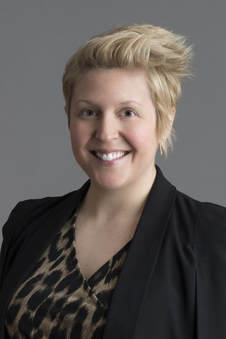 This week we have some east coast content for the Women Leading in Law series with a profile of Jennifer Taylor a research lawyer at Stewart McKelvey in Halifax. I have yet to meet Jennifer in person but have been following her on Twitter for some time and we have had some lovely Twitter conversations and exchanges. She is a "must follow" for anyone interested in feminism, women in the law, or equality issues in general (or a little pop culture for fun) . Read on to learn about Jennifer's journey in law so far, her thoughts on the importance of self-care, and how we, as lawyers, can use our privileged positions to help those around us: 1.Tell me a little about your practice or business. I am a research lawyer in Halifax, Nova Scotia, at Stewart McKelvey, a large regional firm with six offices across the Atlantic Provinces. It’s a non-partnership track role within our advocacy group and quite academic in nature (all of which was by choice). I conduct in-depth legal research on complex questions, and write a lot of memos, opinions, briefs, and factums. This work can come from any area of law but I have a special love for constitutional law. Teamwork is a huge part of our culture at Stewart McKelvey so as my practice develops I get to work on teamed files from start to finish (rather than just jumping in when a memo is needed, although I’m always happy to do that too). I also help train our students on legal research, and I remain vocal within the firm on issues related to feminism, diversity, and inclusion. 2.Why did you go to law school? Destiny, as cheesy as that sounds! My father is a lawyer at another firm in Halifax, and I think law school was in my blood even though I tried to fight it (in my high school yearbook, I said I was planning to be on Broadway). Towards the end of my undergrad in Political Science and History at Dalhousie (yeah, that acting thing didn’t work out), as I was writing my honours thesis on the Quebec Secession Reference, I realized that law had been there all along and finally started thinking about law school more seriously. My Dad had never explicitly encouraged me to go to law school until it was actually time to make the decision, at which point he was pretty firm about his recommendation. He said it would teach me how to think critically and make me a better writer, even if I didn’t end up being a lawyer. So I took his advice. My initial plan was to go to law school (which I had the privilege of doing with family support and scholarships) and then become a journalist, but the legal profession took hold of me and now I can’t imagine not being a lawyer. 3.How did you get to where you are today? Design? Chance? Both? Design (plus some lucky timing). During law school at Dalhousie, I became increasingly aware that my skills were on the academic side of law, but I did not necessarily want to pursue academia. After a lot of soul-searching, three months before graduation I gave up my original articling position (note that this was (a) out of character for me and (b) pre-recession) and gambled on getting an articling position in Toronto, with the Ministry of the Attorney General for Ontario (“MAG”). MAG has lots of academic-style articling positions and I was fortunate enough to secure one with the Crown Law Office--Criminal, which does all the criminal appeals for indictable offences in Ontario. Working on factums for the ONCA and SCC was literally a dream come true. After that, I pursued my academic inclinations in the LLM programme at the University of Cambridge (thanks to the generous J William E Mingo Memorial Scholarship for International Study); spent two blissful years as a law clerk to the Justices of the Nova Scotia Court of Appeal; and then joined Stewart McKelvey in 2013. I was very clear when I joined the firm about the kind of work I wanted to do. I realize how privileged I have been to make these choices, and to find a firm that was open to this kind of position. 4.What is your most significant achievement? What are you proud of? Winning the 2016 Zöe Odei Young Lawyers’ Award from the Nova Scotia branch of the Canadian Bar Association. This Award recognizes contributions to the CBA and the broader community, and it is named after a young lawyer from here who passed away several years ago. I didn’t have the honour of knowing Zöe, but I have heard such incredible things about her from my colleagues and it is so meaningful to carry a small piece of her legacy. 5.What are some key challenges, and more importantly, opportunities for women in law? As I wrote recently for the CBA National Blog, this is still a patriarchal profession, and you don’t have to look much further than the billable hour structure—still alive and well at most private firms—to see that. (Shout-out to Jordan Furlong’s July 2017 piece on this issue.) That said, I’m lucky to be at a firm with many women in leadership roles – including our Regional Managing Partner and our CEO. The leadership opportunities are there, but we need to retain women in private practice to keep filling the leadership pipeline. “Work-life balance” may be a cliché, but it’s also a real challenge for many women, especially in private practice. Setting boundaries and prioritizing self-care take constant effort, but that effort pays off when you’re happy with how your life looks. For me, work-life balance also involves leaving lots of time for my ‘extra-curricular activities’, like my roles as vice-chair of the Young Lawyers Section for the CBA-NS and chair of the Halifax Dance Board of Directors (and many others, from the Schulich School of Law to my church …I still find it hard to say no!). Last but not least: while it’s important to focus on advancing our own careers, we need to remember the incredible privilege we have as women lawyers, and look for opportunities to use our voices and skills to benefit those in our communities who may not have that same privilege. 6. What advice would you give a woman starting her legal career? Like I said above, set boundaries and prioritize self-care, because you can’t be good at your job if you don’t do those two things. Speaking of your job, make sure you know yourself, and what you’re truly passionate about and good at, and find a position that fits YOU rather than trying to fit yourself into some kind of “as-seen-on-Suits” lawyer mould that doesn’t align with who you are. Finally, consider it a duty to give back to the legal community and the community at large – you will find fulfillment, and your communities will benefit. ---------- Thank you Jennifer for your insights and advice (I find it hard to say "no" too! I think I suffer from a bit of FOMO ;) ICYMI: Previous posts profiled Rebecca Durcan, Atrisha Lewis, Vandana Sood, Kathryn Manning, Kim Hawkins, Kyla Lee, and Eva Chan. Sign up to have these profiles sent directly to your email address and stay tuned for the next post soon! The "Women Leading in Law" series focuses on good news stories and highlights amazing women succeeding in the legal profession. Each post includes the profiled lawyer's answers to six questions. Prepare to be inspired!
0 Comments
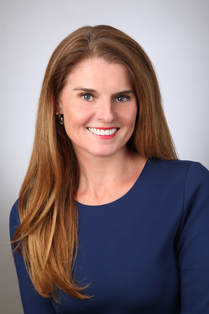 I first met Rebecca Durcan at a Law Society event in 2015 when she was running for Bencher. Rebecca's wit, intelligence, and warmth stood out (and we quickly bonded over the fact that we each had three kids). I knew leaving that event that Rebecca definitely had my vote. While Rebecca was not elected (boo!),(*update below*), she continues to impress me whenever we run into each other at legal events (and on Twitter). Read on to learn about Rebecca's successes as a lawyer and for some encouraging words that I believe will resonate with women who are considering leaving law. 1. Tell me a little about your practice or business: I am a professional regulation lawyer at Steinecke Maciura LeBlanc. No one really understands my job. Essentially, I assist regulators. I either act as their prosecution counsel (e.g. acting as a prosecutor in a discipline hearing), or their general counsel (assisting at Council meetings, drafting regulations, bylaws, policies, etc) or their discipline committee’s independent legal counsel (I act as the lawyer to the discipline committee during a discipline hearing). As you can surmise it is really interesting and varied. SML focuses solely on professional regulation so I get to work with lawyers and clerks who marinate in this type of work. I consider myself lucky as I genuinely love my job. 2. Why did you go to law school? I always wanted to be a lawyer. I know now that I did not fully appreciate and understand what “being a lawyer” meant. 3. How did you get to where you are today? Design? Chance? Both? Definitely chance. I started my career at a big law firm. I defended hospitals and regulated health professionals in malpractice claims. The work was interesting and I was able to work with some amazing lawyers, but I was not fulfilled. I thought of quitting law and doing something else. After the birth of my second son I quit altogether. And magically received a call from a friend at SML who said they were looking for someone. Eight and half years (and one more boy later) I am a partner at SML. I love the public interest element of my job. I think that was the component I was missing before. I was exposed to that during my articling year when I helped out at the Walkerton Inquiry. My job now provides me with that fulfillment. 4. What is your most significant achievement? What are you proud of? I am never going to win an award from the Law Society or OBA. I will never be in Lexpert. My successes are not as noticeable to others. My achievements are more low key. I am proud that I am a partner in my law firm. I am proud that I am an involved parent and daughter and that my kids always feel loved and appreciated. I am proud that I ran for bencher (although I did not win) as that was a good lesson for my kids (and me) to put yourself out there. I am proud of my relationships with my clients and the way in which I treat opposing counsel and registrants (I have received thank you cards from registrants who I prosecuted at discipline – how cool is that?) 5. What are some key challenges and opportunities for women in law? Women still get judged for having a uterus. I remember being asked outright during articling interviews if I was married and if I was intending to have kids. This was forbidden even back then. But they asked.There is a belief that if you have kids, and take time off, you are not committed to your job. This is inane. That type of mindset needs to change. I became a better and more efficient lawyer after I had kids. I know that is anecdotal but it is also the experience of several of my colleagues. I think the opportunities for women in law are going to explode. We seem to be approaching the tipping point of realizing that having a small percentage of women in positions of leadership in law firms is wrong. And a bad business move. 6. What advice would you give a woman starting her legal career? Don’t give up. There are going to be times when you need to gear down. And that is okay. Whether it is due to responsibilities at home (be it your children or parents) or other passions (athletics, writing a book) there will be times in your life when you cannot give your all to law. But don’t leave. Keep a toe in the water so that you can always come back and resume. It will not be easy. But you have worked so hard to get here. When (and if) you are ready to gear back up, you will be ready to do so. But don’t leave. We need strong and interesting women in the profession! **UPDATE: With the election of Malcom Mercer as Treasurer of the Law Society of Ontario in June 2018, Rebecca has now become an elected Bencher! Congrats Rebecca! --------------------------------------------- Thanks Rebecca for participating in this series. Rebecca is exactly the type of lawyer I wanted to profile and one of the reasons why I started this series in the first place. There are talented women lawyers out there who may never be in the news like Marie Henein or Beverley McLachlin, or win prestigious awards (yet!) but we need to celebrate and promote their successes and contributions to law too! ICYMI: Previous posts profiled Atrisha Lewis, Vandana Sood, Kathryn Manning, Kim Hawkins, Kyla Lee, and Eva Chan. Sign up to have these profiles sent directly to your email address and stay tuned for the next post soon! The "Women Leading in Law" series focuses on good news stories and highlights amazing women succeeding in the legal profession. Each post includes the profiled lawyer's answers to six questions. Prepare to be inspired! 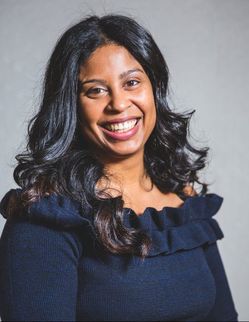 I first met the next lawyer in this series, Atrisha Lewis, when she was a first year associate at McCarthy Tétrault. Atrisha immediately struck me as an intelligent young woman who was going places in this profession. Now, several years later, she is an experienced trial lawyer, prolific writer, and a current DiverseCity Fellow with the CivicAction Leadership Foundation (just to name a few of her accomplishments). Learn how (after setting her sights on becoming a trial lawyer) Atrisha has done seven trials in her first five years of practice on Bay Street, the role that mentors and champions have played in Atrisha's career, and how to find your own mentors and champions: 1. Tell me a little about your practice or business. I am a trial lawyer. I love litigating all kinds of civil disputes, including commercial, intellectual property, defamation, and professional negligence disputes. 2. Why did you go to law school? I steadfastly held onto my dream of being a lawyer since I was seven years old. I am not sure what sparked my ambition, but I recall feelings of helplessness and powerlessness in my youth. I saw law as a career which would give me the tools I needed to ensure my voice was heard. Having practiced law for a number of years now, I must say I am impressed with the level of insight I had as a young girl. My career in law has been what I always dreamed it would be and more. 3. How did you get to where you are today? Design? Chance? Both? I subscribe to the old adage that success is preparation meets opportunity. I am where I am today because I made sure to create the most opportunities for success along the way. For example, I wanted to be a lawyer so I applied to every law school in Ontario and every law school that waived my application fee after completing my undergraduate degree. I wanted to be a Bay Street lawyer so I applied to 39 Bay Street law firms during on campus recruitment and attended every single open house or other event put on by a Bay Street law firm. Once I knew I wanted to be a trial lawyer, I sought out opportunities to work for the leading trial lawyers at my firm. Fortunately, many of these lawyers took an interest in me and mentored me along the way. I said yes to every single trial opportunity that came my way. Luckily, many of these trials actually proceeded (a rarity in the era of the vanishing trial), giving me the opportunity to get on my feet. 4. What is your most significant achievement? What are you proud of? As an increasingly senior litigator at a leading Bay Street firm, I now have a platform to be heard and I am most proud of myself for using my voice to pave the way for diverse lawyers behind me. I went to law school because I wanted to be heard and I am making sure that I am being heard loud and clear. Writing my recent article in Canadian Lawyer Magazine was not easy for many reasons, including that I have laid out my inner thoughts for all to read and judge. Thankfully, the reception has been overwhelmingly positive which has only reinforced for me that although risky and uncomfortable, the profession needs my voice. 5. What are some key challenges and opportunities for women in law? One of the biggest barriers for women is keeping pace with their male counterparts in respect of skills development. Law is an apprenticeship. No one is born a good cross-examiner or talented litigation strategist. These skills are learned by observing excellent advocates at work and more importantly, by doing. Getting the opportunities to “do” is not easy in Big Law when the stakes of a case are high. The challenge for many women is finding mentors and champions who are willing to put themselves on the line so that you can learn. For example, my first significant witness at a trial was an expert cross-examination for a medical negligence trial. Tom Sutton, litigation partner at McCarthy Tétrault, generously let me cross-examine the expert although if I messed up, he would wear our loss as the lead counsel. For my second expert cross-examination at a trial, Geoff Hall, another litigation partner at McCarthy Tétrault, generously let me cross-examine the one and only expert witness in a case where the Plaintiff was claiming $25 million. The Sunday before my cross-examination, Geoff patiently pretended to be the expert I was to cross-examine while I did a six-hour mock run-through. Sarit Batner, a preeminent litigator and a female partner at McCarthy Tétrault, and I have done three trials together. Each time, Sarit has provided me with real-time feedback on my trial skills. I have honed my cross-examination skills because lawyers like Tom, Geoff and Sarit have been extremely generous. To truly develop your skills, you will need mentors and champions to invest in you, often at a significant personal cost. Cultivating those kinds of relationships, which are critical to your success as a litigator, has proven to be much more difficult for women than it is for men, for reasons both known (e.g. unconscious bias) and unknown. The challenge for women is that gaps in development get amplified quickly in law. For instance, I have now done seven Superior Court trials in my first five years of practice, which is an excellent stat for a civil litigator. I am now ahead of my year of call when it comes to trial experience, so guess who will get the next trial brief? Luckily, I am benefiting from the increasing experience gulf, but many women are on the wrong side of the experience equation. 6. What advice would you give a woman starting her legal career? I have two pieces of advice for women starting their legal careers. First, always say yes. In the first few years, building experience and skills is so fundamental (see above). Often times saying yes is personally uncomfortable (e.g. how can I possibly find the time?), but I have never regretted saying yes. My second piece of advice for women is to unapologetically insert yourself into the situations you want to be in. For instance, although Geoff Hall is an important mentor and champion of mine, the relationship was cultivated by me actively pursuing it. Once I discovered he arrived at the office every day at 7:30 a.m. , I stopped by his office in the morning to discuss my files and seek his advice. Over time we developed a professional relationship and he began investing in my career. ---------- Thank you Atrisha for your wonderful insight and advice! ICYMI: Previous posts profiled Vandana Sood, Kathryn Manning, Kim Hawkins, Kyla Lee, and Eva Chan. Sign up to have these profiles sent directly to your email address and stay tuned for the next post soon! The "Women Leading in Law" series focuses on good news stories and highlights amazing women succeeding in the legal profession. Each post includes the profiled lawyer's answers to six questions. Prepare to be inspired! 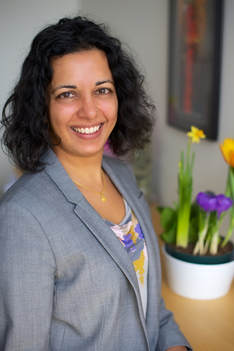 The next leading lawyer profile in this series features Vandana Sood who is truly making a difference as the Supervising Lawyer at Rise Women's Legal Centre in Vancouver. RISE may sound familiar as Executive Director Kim Hawkins has also been profiled in this series. Learn about why Vandana journeyed from molecular biology to working at a feminist legal clinic and her helpful advice on how to figure out what to do with your law degree: 1.Tell me a little about your practice or business. I am the Supervising Lawyer at the Rise Women’s Legal Centre. Here, I have the opportunity to teach law students to be effective, compassionate and courageous advocates on behalf of women and those who identify as women to escape situations of violence and oppression, and to bring stability to their lives by helping to resolve their family law matters. 2. Why did you go to law school? I went to law school as a mature student because I wanted to do work which would help remedy societal inequities and resulting injustices which I observed around me. I figured the tools I needed to change society were the laws which govern society, so I decided to become a lawyer to have the tools and the power to try to make those changes. My specific motivation for pursuing a career in law was to assist women and particularly women of color in escaping situations of violence and oppression, and to empower them and help lift themselves up. 3. How did you get to where you are today? Design? Chance? Both? I initially worked in molecular biology out of university, by chance. I always knew I was more interested in the helping professions, for the above reasons of addressing unfairness and societal inequities. Through trial and error, I realized that law was the best way for me to address these issues. 4. What is your most significant achievement? What are you proud of? I am proud that I have been able to shape my career to work in an area which I believe in so strongly; assisting women in escaping situations of violence and moving forwards with their lives, and that I am now able to do this work within a larger context of training future lawyers and working within the larger anti-violence, women’s and legal communities. I am proud of the achievements of our very new Centre, we have helped so many women and our students leave the Centre with such passion for this work. 5. What are some key challenges and opportunities for women in law? The challenges are that the legal profession is conservative, cautious and slow to embrace change, and still somewhat patriarchal in nature. The opportunities are that the legal profession is changing, albeit slowly, and a law degree adds power to women’s voices, so use your voice! 6. What advice would you give a woman starting her legal career? Think about why you started a legal career, don’t forget that reason as you go through law school. Seek out mentors who are doing the work you are interested in and talk to them. If you don’t know what you are interested in then volunteer or work summers/part-time in areas that pique your interest to see if you like them. The hardest thing when starting out is knowing what you want to do with your law degree. Once you know, pursue it, no matter the supposed odds, and the path will open before you. ----------- Thank you Vandana for agreeing to be profiled in this series. You can find out more about Vanada and how to support RISE here. ICYMI: Previous posts profiled Kathryn Manning, Kim Hawkins, Kyla Lee, and Eva Chan. Sign up to have these profiles sent directly to your email address and stay tuned for the next post soon! The "Women Leading in Law" series focuses on good news stories and highlights amazing women succeeding in the legal profession. Each post includes the profiled lawyer's answers to six questions. Prepare to be inspired! |
Erin C. Cowling is a former freelance lawyer, entrepreneur, business and career consultant, speaker, writer and CEO and Founder of Flex Legal Network Inc., a network of freelance lawyers.
Categories
All
Archives
December 2022
|
|
(C) 2014-2024 Cowling Legal. All rights reserved.
|
Please note I am not currently practicing law.
Information on this website does not constitute legal advice and is for informational purposes only. Accessing or using this website does not create a solicitor-client relationship. See website Terms of Use/Privacy Policy. info@cowlinglegal.com
3080 Yonge Street, Suite 6060 Toronto,ON M4N 3N1 (appointment only) |
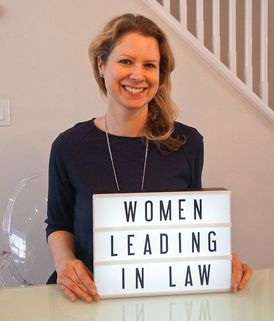
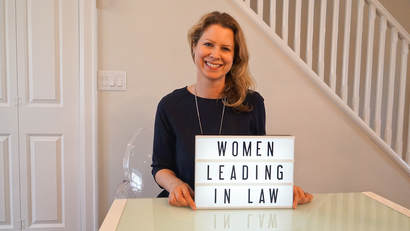
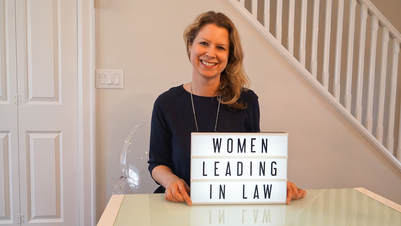
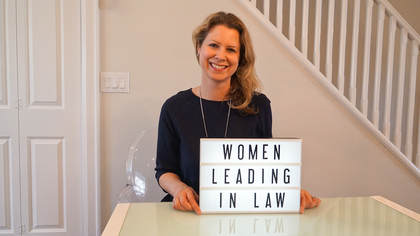
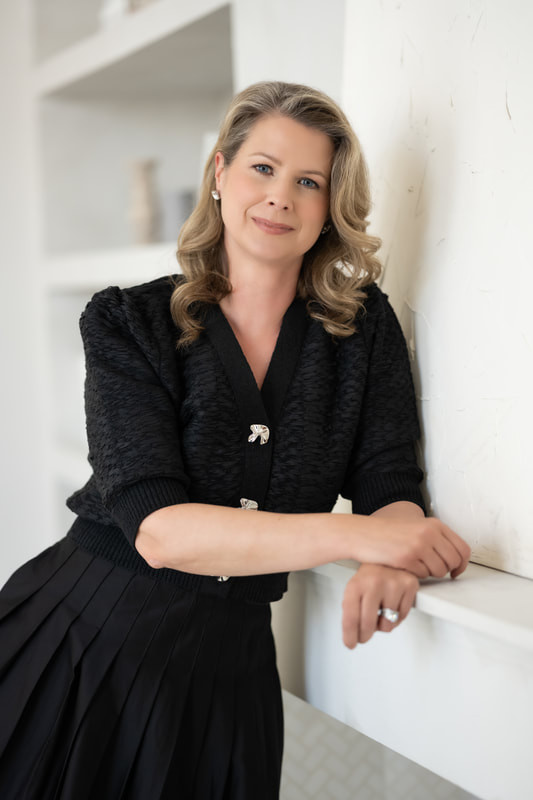





 RSS Feed
RSS Feed
